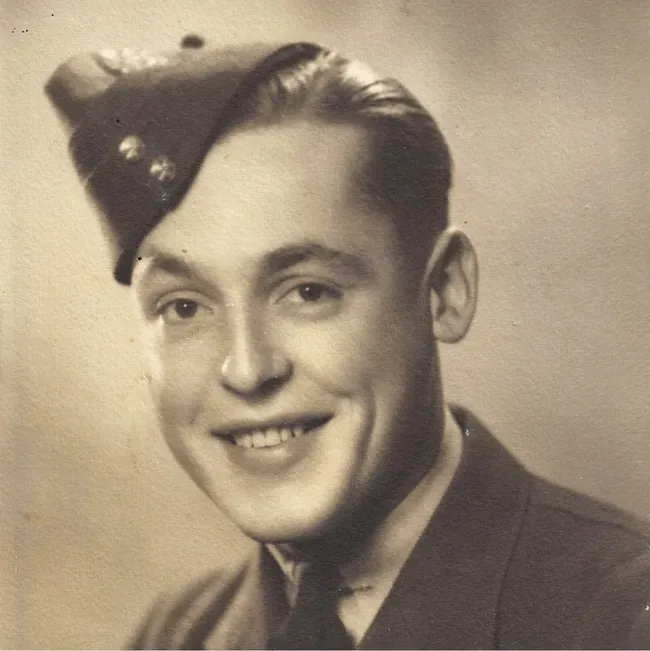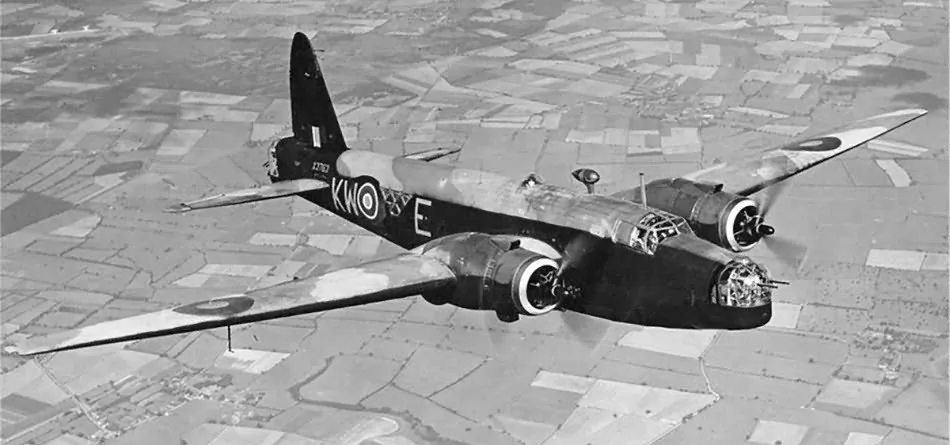Pilot officer Donald Allan Elliott was flying high over Cologne, Germany, when everything went white.
Caught in the headlights of an enemy aircraft, his Vickers Wellington bomber was rattled by the pat-pat-pat of artillery fire.
Ever the pragmatist, he barely hesitated before diving into the night sky and pulling the parachute cord, the full moon guiding his way to the enemy waiting for him below.
"Baled out over Germany "” landed safely in wheat field. Bruised toes and black eye only damage," Elliott wrote to his mother soon after being captured on July 8, 1941.
Although he did not know then if he would survive the war, Elliot would live until the age of 96. He died this June of prostate cancer at his farm in Caledon.
Elliott would spend the remainder of the war as a prisoner of Nazi Germany. Writing almost every two weeks to his mother in Swift Current, Sask., he described the homesickness, tedium and uncertainty of life as a PoW.
"Winter has arrived at last "” and everything reminds me of home except the barbed wire," he wrote on Dec. 26, 1941, from a camp in Germany.
By 1943, Elliott would be transferred to Stalag Luft III in Poland, the PoW camp made famous in the movie The Great Escape. At the camp, prisoners "” nicknamed kriegies "”organized elaborate sporting matches, musical productions and escape attempts to pass the time until the end of the war.
One of the escape attempts involved using a wooden horse to smuggle tools, men and dirt to secret tunnels. Kriegies, including Elliott, would jump over the horse doing gymnastics, in order to distract the German guards from the real work below.
But while he helped others with their plans, he never attempted to escape himself.
In many ways, Elliott's great escape was when he joined Squadron 99 of the Royal Air Force in 1940. Growing up in Swift Current during the Depression, the studious Elliott had to drop out of university after only a year because he could not afford tuition.
"It was an exciting adventure for a young guy from a small town in the middle of nowhere," said Peter Elliott, his youngest son.
Although the RAF promised to help him see the world, it was far from a pleasure cruise. Bomber Command suffered some of the highest casualty rates in all the Royal forces "” as many as six out of 10 airmen would be killed by the end of the war.
"He had this belief, this inexplicable belief, that he would not be one of those," Peter Elliott said.
In all likelihood, it was Elliott's capture by the Germans in 1941 that saved his life. When he was finally liberated by Russian troops on Feb. 18, 1945, Elliott returned home to continue his schooling.
He eventually earned a law degree from the University of Toronto and worked for the Toronto Transit Commission from 1949 until his retirement in 1978. After his retirement, he obtained both a master's degree and a doctorate.
Although he led an active life post-service, Elliot kept his kriegie connections close. He met his wife, Grace, while buying ice cream at the family dairy of a fellow PoW.
The war gave him many lifetime friends, but it also made him acutely aware of suffering and deprivation. He gave money to the Red Cross throughout his life, in thanks for their help providing him with food and clothing while he was a prisoner.
And after spending years eating mostly spuds, not even French fries could tempt Elliott.
"I never saw him eat a potato," remarked Gordon Elliott, his oldest son.
Suing the CBC
But when the CBC ran a documentary about Bomber Command, The Valour and the Horror , Elliot vigorously defended his role in the war. He and fellow PoWs felt the film accused bombers of targeting civilians, so they sued the CBC for defamation in the 1990s.
Although they did not win, the program was never aired in Canada again. They also took action against the Canadian War Museum for a similar depiction of Bomber Command. The museum eventually changed the wording of an exhibit.
Decades after the war, Elliott remembered its harsh realities with a characteristic mix of pragmatism and optimism. For him, war wasn't glorious, but it was sometimes necessary.
"It's like a lot of bombing raids: they weren't always completely successful, but in the end, right prevailed," he told the Ontario Court of Appeals in 1995.
Elliott is survived by his three children, Gordon, Peter and Barbara, and his grandson Alex. Toronto Star, July 12, 2013



